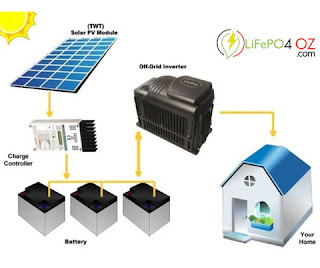A Detailed Guide on the Lithium-Ion Solar Battery
The launch of the Powerwall 1 ignited a torrent of discussion and research about energy storage and the development of cost-effective solar batteries. It also propelled Tesla to be one of the finest battery manufacturers in the U.S. Powerwall Paved. The way for the future of lithium-ion solar batteries - Establishing pricing of battery energy storage, driving investment in the energy saver sector, and creating hope that battery technology could become affordable for average residential customers.
Before the development of the Tesla Powerwall, most solar lithium off grid batteries storage systems were composed of lead acid battery banks. However, there are now many lithium-ion solar batteries on the market. And every homeowner can find the right option for them.
How much do lithium-ion solar batteries cost?
The biggest concern most homeowners have is how much an energy storage system will cost them. The Total cost to install a lithium battery storage system could be anyplace from $8,000 to over $35,000.
The price can vary depending on:
- What manufacturer do you choose?
- The features the battery has
- How many batteries do you need?
- The installation costs
The cost of installing lithium-ion batteries is much more than the cost of installing lead-acid batteries. A lead acid battery installation could run you anywhere from $6,000 to a maximum of $16,000 - much lesser than the installation cost of lithium-ion solar batteries.
Popular lithium-ion solar battery brands
There are many lithium-ion solar batteries on the market. The trendiest choice for residential energy storage is the Tesla Powerwall, a 14.2-kilowatt hour (kWh) lithium-ion battery that costs about $13,000, including installation costs.
The Tesla Powerwall is one of the reasonably priced lithium ion solar batteries, which is one of the reasons it is so trendy.
The following table outlines some other popular lithium-ion solar batteries on the market:
What are the advantages and disadvantages of lithium-ion solar batteries?
There are so many reasons why the introduction of lithium-ion solar batteries rocked the solar industry that the technology offers a variety of benefits over lead acid batteries.
Nonetheless, there are some cases in which a lead acid battery may be a battery choice to save your solar power.
Advantages of lithium-ion solar batteries
The advantages of lithium-ion solar batteries include:
- Higher depth of discharge
- Long lifespan
- Higher energy density
- High efficiency
- Less maintenance
Disadvantages of lithium-ion solar batteries
The disadvantages of lithium-ion solar batteries include:
- High cost
- Thermal runaway
When is a lithium-ion solar battery the best choice?
Lithium-ion solar batteries are the best solar energy storage system for daily residential usage because they use very little space while still storing a substantial amount of energy. Also, their high DoD means you can save more energy.



Comments
Post a Comment